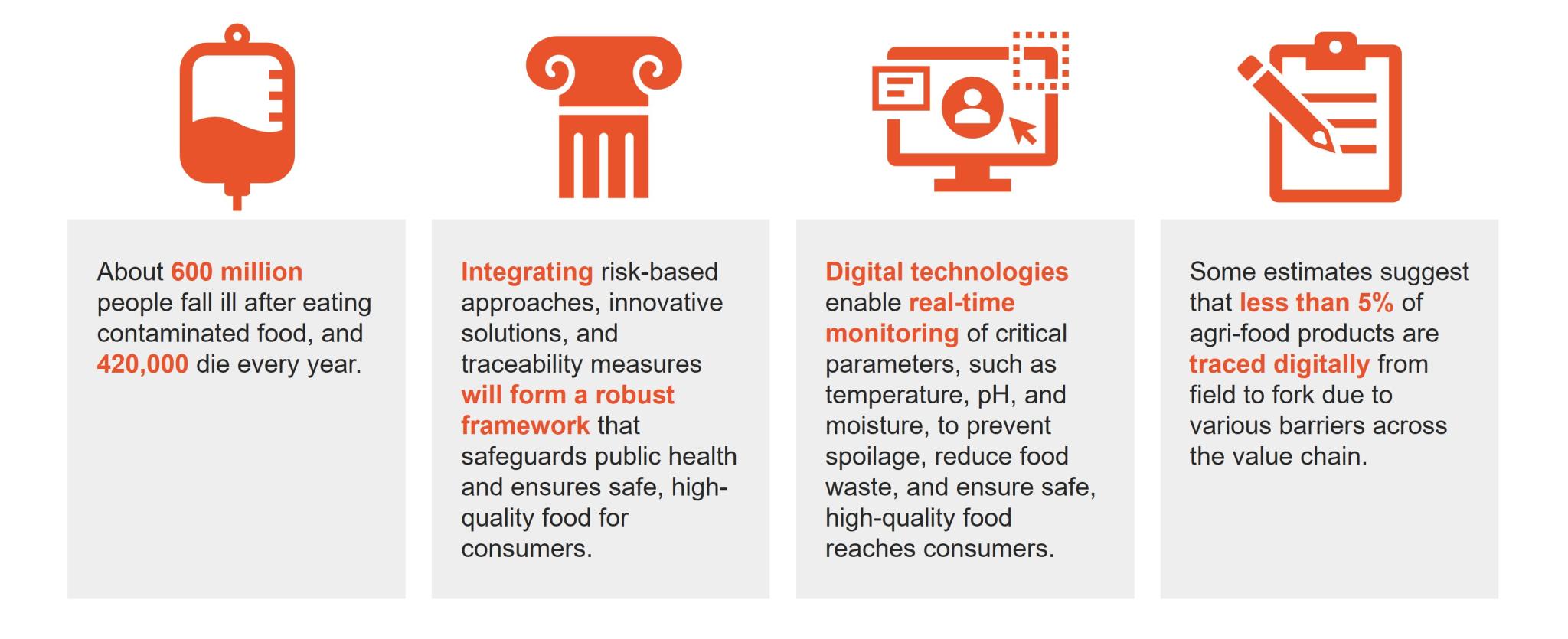
Enhancing Agri-Food Traceability in the Greater Mekong Subregion

Interoperable protocols and standards play a critical role in enhancing cross-border traceability, particularly in response to increasingly strict import requirements set by a few countries in the GMS. This demand for interoperability not only ensures regulatory compliance but also meets consumer preferences in markets like the European Union and the People’s Republic of China (PRC), where consumers increasingly seek safer and more traceable products.
Some GMS countries are already undergoing noticeable changes as these dynamics reshape trading patterns and supply chain characteristics. For instance, Viet Nam's dragon fruit exports to the PRC now primarily pass through official trade gates instead of local border gates. This shift is a response to the PRC's new import requirements, covering phytosanitary standards, traceability, packaging, labeling, appearance, and quality. Similar requirements apply for Thailand’s exports of durian to PRC and Lao PDR’s exports of livestock to PRC.
However, stakeholders, including orchard producers and processing factories, face challenges in low-digital-literacy environments and implementing technological innovations for food safety. While infrastructure investments are crucial, digital technology training and outreach to lead farmers in remote areas are also essential, especially in regions dominated by small producers. It's imperative to demonstrate the benefits versus costs of scaling up and implementing traceability systems across the value chain. For instance, in the case of Good Agricultural Practices (GAP)-certified durian fruit trade between Thailand and the PRC and dragon fruit trade between Viet Nam and the PRC, data logging and storage were mandated only until collectors, hindering final customers from tracing the product back to its origins.
Moreover, while some value chains are still developing traceability protocols and procedures, others have witnessed a surge in commodity-specific data logging and traceability platforms. Unfortunately, this has led to incompatibility and increased indirect costs, particularly for farmers navigating multiple interfaces and inputting information redundantly. Due to the lack of traceability protocols, the premium prices that certified food items could potentially command have often been eroded.
EIN Presswire does not exercise editorial control over third-party content provided, uploaded, published, or distributed by users of EIN Presswire. We are a distributor, not a publisher, of 3rd party content. Such content may contain the views, opinions, statements, offers, and other material of the respective users, suppliers, participants, or authors.

